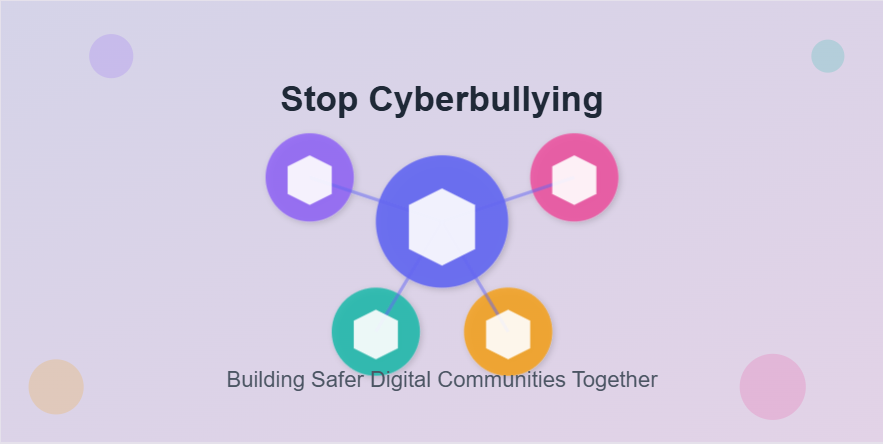Table of contents
- The Paradox of Modern Social Connections
- Understanding Social Minimalism
- Benefits of a Minimalist Social Circle
- Strategies for Cultivating a Minimalist Social Circle
- Overcoming Challenges in Social Minimalism
- The Ripple Effect: How Social Minimalism Impacts Various Life Aspects
- Social Minimalism in Different Life Stages
- The Future of Social Connections: A Minimalist Perspective
In a world where our social media friend counts often surpass the population of small towns, Sarah found herself drowning in a sea of superficial connections. Despite having over 1,000 Facebook friends and countless LinkedIn contacts, she felt more isolated than ever. This paradox of modern social life is not uncommon, and it’s driving a growing number of people to embrace a counterintuitive approach: social minimalism.
The Paradox of Modern Social Connections
The Illusion of Connectivity in the Digital Age
We live in an era of unprecedented connectivity. With a few taps on our smartphones, we can instantly reach out to people across the globe. Yet, this constant connection often creates an illusion of meaningful interaction. Dr. Sherry Turkle, MIT professor and author of “Alone Together,” argues that “we’re getting used to a new way of being alone together” [1].
Quantity vs. Quality: The Hidden Cost of Numerous Shallow Relationships
While it’s easy to accumulate hundreds or even thousands of online connections, maintaining these relationships can be emotionally draining. A study published in the Journal of Social and Personal Relationships found that people can only manage about 150 meaningful relationships at a time. This number, known as Dunbar’s number, suggests that there’s a cognitive limit to the number of people with whom we can maintain stable social relationships.
Social Media’s Impact on Our Perception of Friendship and Connection
Social media platforms have redefined the concept of friendship. A 2021 Pew Research Center study revealed that 70% of Americans use social media, with the average user spending about 2 hours and 24 minutes on these platforms daily [3]. However, this constant exposure to others’ curated lives can lead to feelings of inadequacy and FOMO (Fear of Missing Out), ultimately diminishing the quality of our real-world interactions.
Understanding Social Minimalism
Defining Social Minimalism
Social minimalism is not about becoming a hermit or cutting off all social ties. Rather, it’s a mindful approach to relationships that prioritizes quality over quantity. As Joshua Fields Millburn, co-founder of The Minimalists, puts it, “Minimalism is the thing that gets us past the things so we can make room for life’s important things—which actually aren’t things at all”.
The Psychology Behind Intimate Friendships
Psychologist Dr. Robin Dunbar’s research suggests that humans have a layered approach to social connections, with an inner circle of about five close friends, followed by larger groups of increasingly casual relationships. These intimate friendships provide a sense of belonging and support that numerous casual acquaintances simply can’t match.
The Concept of Dunbar’s Number and Its Implications for Social Circles
Dunbar’s number, approximately 150, represents the cognitive limit to the number of people with whom one can maintain stable social relationships. This concept aligns with social minimalism, suggesting that focusing on a smaller group of meaningful connections may be more natural and beneficial than trying to maintain a vast network of acquaintances.
Benefits of a Minimalist Social Circle
Enhanced Emotional Well-being and Reduced Social Anxiety
By focusing on a smaller, more intimate social circle, individuals often experience reduced social anxiety and improved emotional well-being. A study published in the American Journal of Psychiatry found that the quality of social relationships was a better predictor of mental health than the quantity of social interactions.
Increased Time and Energy for Nurturing Meaningful Relationships
With fewer social obligations, people can invest more time and energy into nurturing their most important relationships. This focused approach allows for deeper conversations, shared experiences, and stronger emotional bonds.
Improved Self-awareness and Personal Growth
Intimate friendships often provide a mirror for self-reflection. Close friends can offer honest feedback and support, fostering personal growth and self-awareness. As philosopher Aristotle noted, “A friend is a second self,” highlighting the profound impact of close relationships on our personal development.
The Paradoxical Expansion of Life Experiences Through Fewer, Deeper Connections
Counterintuitively, having a smaller social circle can lead to a richer, more diverse life experience. Deep friendships often expose us to new ideas, perspectives, and experiences that we might not encounter in larger, more superficial social groups. This phenomenon, which we might call “social depth,” can broaden our horizons more effectively than a wide but shallow network.
Strategies for Cultivating a Minimalist Social Circle
Assessing Your Current Social Landscape
Start by taking inventory of your current relationships. Consider which connections bring you joy, support, and growth, and which ones might be draining or unfulfilling. This process isn’t about judging the worth of individuals, but rather assessing the mutual value of the relationship.
Identifying Core Values and Aligning Relationships Accordingly
Reflect on your personal values and life goals. Are your current relationships aligned with these? Identifying shared values can help you focus on nurturing the most meaningful connections in your life.
The Art of Saying ‘No’ and Setting Boundaries
Learning to decline invitations or requests that don’t align with your priorities is crucial in maintaining a minimalist social circle. This might feel uncomfortable at first, but it’s essential for preserving your time and energy for the relationships that matter most.
Nurturing Existing Relationships with Intentionality
With fewer social obligations, you can focus on deepening your existing relationships. This might involve scheduling regular catch-ups, planning meaningful activities together, or simply being more present and attentive in your interactions.
Seeking Quality Over Quantity in New Connections
When forming new relationships, prioritize quality over quantity. Look for connections that align with your values and offer potential for deep, meaningful interaction.
Overcoming Challenges in Social Minimalism
Dealing with FOMO (Fear of Missing Out)
FOMO can be a significant hurdle when adopting a minimalist approach to socializing. Combat this by reminding yourself of the benefits of your focused relationships and the meaningful experiences you’re gaining.
Navigating Societal Expectations and Pressure
Society often equates popularity with a large social circle. Remember that true fulfillment comes from the quality of your relationships, not the quantity. As author Henry David Thoreau wisely noted, “I had three chairs in my house; one for solitude, two for friendship, three for society.”
Balancing Alone Time with Social Interaction
Social minimalism isn’t about isolation. It’s about finding the right balance between solitude and social interaction that works for you. This balance can vary greatly from person to person, so it’s important to tune into your own needs.
Maintaining Professional Networks While Practicing Social Minimalism
In professional contexts, it’s often necessary to maintain a broader network. The key is to approach these connections with intention, focusing on mutually beneficial relationships rather than collecting contacts for the sake of it.
The Ripple Effect: How Social Minimalism Impacts Various Life Aspects
Career and Professional Growth
A focused approach to professional relationships can lead to more meaningful mentorships, collaborations, and opportunities. Quality connections in your field can provide deeper insights and more substantial support than a vast network of casual acquaintances.
Personal Hobbies and Interests
With more time and energy, you may find yourself diving deeper into personal interests or discovering new passions. Your core group of friends can provide encouragement and sometimes even join you in these pursuits.
Family Dynamics
Social minimalism often leads to improved family relationships. With less social clutter, there’s more time and emotional energy to invest in these fundamental connections.
Overall Life Satisfaction and Purpose
Many who adopt social minimalism report a greater sense of life satisfaction and purpose. By focusing on what truly matters, life often feels more meaningful and fulfilling.
Social Minimalism in Different Life Stages
Young Adults: Building a Foundation for Meaningful Connections
For young adults, social minimalism can provide a framework for building a strong foundation of relationships. It encourages thoughtful choices about friendships during a period often characterized by social exploration.
Mid-life: Reassessing and Refining Social Circles
Mid-life often brings a natural reassessment of relationships. Social minimalism can guide this process, helping individuals focus on the connections that align with their evolving values and life goals.
Later Life: The Importance of Quality Relationships in Aging Well
Research consistently shows that strong social connections are crucial for healthy aging. A study in the journal Personal Relationships found that the quality of a person’s social circle is a stronger predictor of health and happiness in older adults than the size of their social network [8].
The Future of Social Connections: A Minimalist Perspective
Predictions for Social Trends in an Increasingly Digital World
As our world becomes increasingly digital, the principles of social minimalism may become more relevant. We might see a trend towards more intentional use of social media and digital communication tools, focusing on meaningful interactions rather than broad, shallow connectivity.
The Potential Societal Shift Towards Valuing Depth Over Breadth in Relationships
There are signs of a growing societal recognition of the value of deep, meaningful connections. This shift could lead to changes in how we structure our social lives, our work environments, and even our communities.
How Social Minimalism Might Shape Future Communities and Social Structures
Looking ahead, we might see the emergence of new social structures that facilitate deeper connections. This could include changes in urban planning to foster community, shifts in workplace culture to prioritize meaningful collaboration, or new forms of social organizations centered around shared values and deep connections.
Conclusion
In a world that often equates social success with the size of one’s network, the concept of social minimalism offers a refreshing alternative. By focusing on cultivating deeper connections with fewer people, we can enhance our emotional well-being, foster personal growth, and ultimately lead more fulfilling lives.
As we’ve explored, this approach isn’t about isolation or cutting people off. Rather, it’s about being intentional with our social energy and investing it where it matters most. Whether you’re a young adult building your social foundation, someone in mid-life reassessing your connections, or in your later years focusing on the relationships that truly matter, social minimalism offers valuable principles for creating a rich, meaningful social life.
As you reflect on your own social circle, consider: Which relationships truly enrich your life? Where might you benefit from deepening existing connections or letting go of draining ones? Remember, the goal isn’t to reach a specific number of friends, but to create a social environment that supports your well-being and personal growth.
In the words of writer C. JoyBell C., “The only way to have a friend is to be one.” Perhaps it’s time we focused less on how many friends we have, and more on being a true friend to those who matter most.
References
1. Turkle, S. (2012). Connected, but alone? TED Talk.
2. Dunbar, R. I. M. (2016). Do online social media cut through the constraints that limit the size of offline social networks? Royal Society Open Science, 3(1), 150292.
3. Pew Research Center. (2021). Social Media Fact Sheet.
4. Millburn, J. F., & Nicodemus, R. (2021). Love People, Use Things: Because the Opposite Never Works. Celadon Books.
5. Dunbar, R. I. M. (2018). The Anatomy of Friendship. Trends in Cognitive Sciences, 22(1), 32-51.
7. Thoreau, H. D. (1854). Walden. Boston: Ticknor and Fields.











startup talky I’m often to blogging and i really appreciate your content. The article has actually peaks my interest. I’m going to bookmark your web site and maintain checking for brand spanking new information.
Business dicker Awesome! Its genuinely remarkable post, I have got much clear idea regarding from this post . Business dicker